Table Rock Tea Company in Pickens, S.C., a 30-acre U.S. tea farm that considers itself a fun “outdoor adventure” brand, is on a mission.
“Our big goal is to see the upstate of South Carolina become known as ‘tea country,’ like Napa Valley is known for wine,” says Steve Lorch, CEO of Table Rock Tea Company, which he runs with his wife Jennifer, who acts as the chief financial officer. “We are well on our way to achieving this goal through our Table Rock Tea Consortium of local growers. The personal goal for our farm is to create a space for meaningful interactions to occur. We’ve made huge investments to build the infrastructure toward that end.”
The Table Rock Tea Consortium – a collective of local tea farmers in South Carolina that the Table Rock Tea farm mentors – adds to the local “tea country” they’re trying to build. “We help them [the Consortium members] get started and then buy back fresh leaves from them come harvest time,” says Lorch. The combined acreage of the Consortium puts us on track to be a fairly large producer.”
Right now, Table Rock Tea currently produces around 1,000 pounds of finished home-grown product per year, but that’s only coming off one or two mature acres of tea. The teas are sold online and to customers who visit the farm. “We have a lot more [tea plants] in various stages of growth,” notes Lorch.
The company also offers limited wholesale tea, giving preference to local businesses that want to carry the brand. “Given the exclusive nature of American tea, we don’t anticipate offering our homegrown tea as wholesale for blending/rebranding. That may change if we ever find we can’t sell 100-percent directly to customers.”
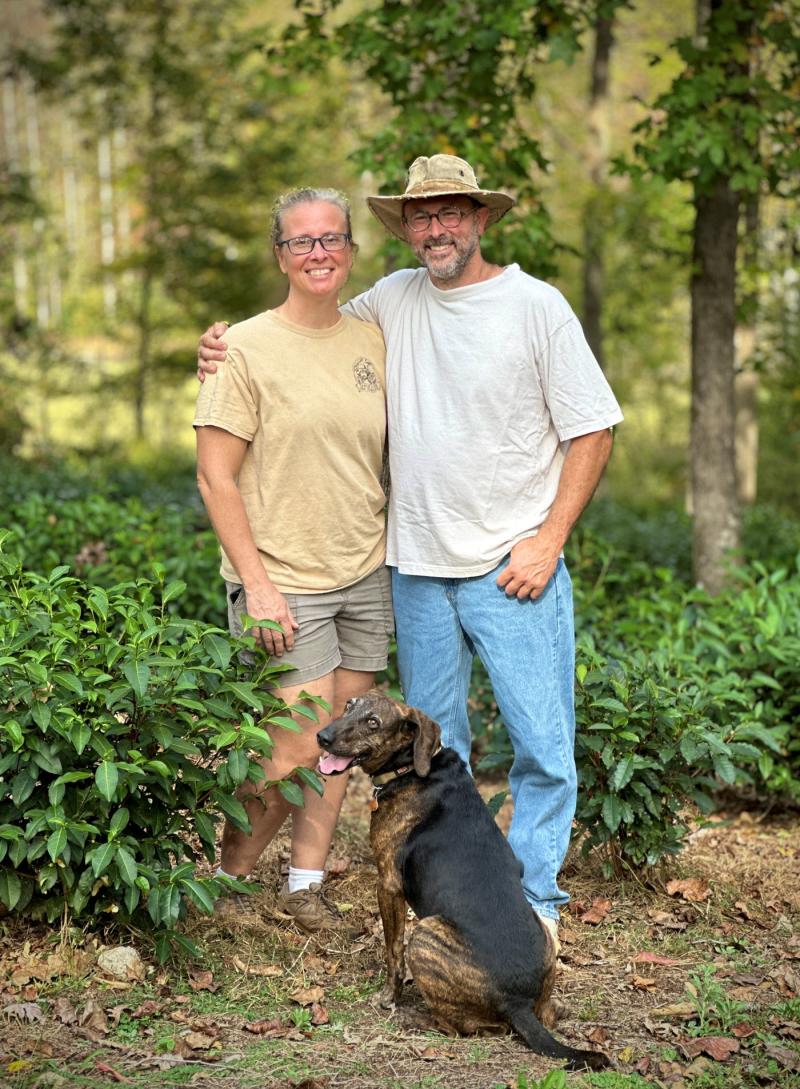
(Photo: Courtesy of Table Rock Tea Company)
In addition to its tea farm and tea processing capabilities, Table Rock Tea Company offers co-packing services for the tea industry, and they’ve been quite successful at it.
“Our co-packing services naturally grew out of our commitment and passion to help the little guy,” explains Lorch. “Much of our success comes from having no minimums, which really helps when someone’s starting out. We can literally run a single tea sachet if that’s what a client wants. As a result, we’ve become a major tea industry incubator, taking people from their home kitchen up to the next level. Several of our clients – many you’d recognize – have become national brands and we’re happy to have been a part of their success stories. Our fast turnaround makes us a particularly good fit for small subscription tea and herb companies.”
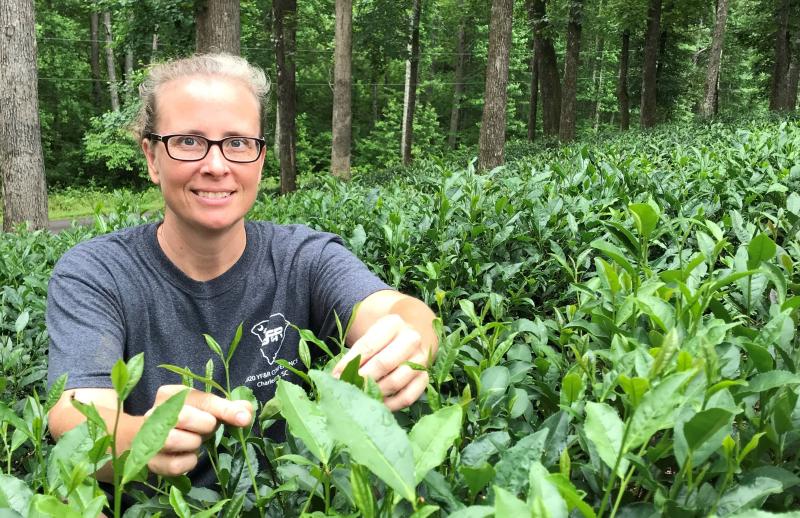
(Photo: Courtesy of Table Rock Tea Company)
Community & Education
At the farm, Table Rock Tea Company has a strong focus on community and education. They offer free educational tours of the grounds, greenhouse and processing areas, and the tours are offered Thursday to Saturday at 10:00 a.m. and Thursday through Sunday at 2 p.m. A standard tour lasts 45 to 60 minutes and can accommodate individuals and groups up to 30. At the beginning of the New Year, they’ll stop the tours from Jan. 1 to Feb. 1, to take their annual farm break.
“In our opinion, agritourism is absolutely essential for the survival of any U.S. tea farm wanting to be more than a cottage brand selling at local farmer’s markets,” reveals Lorch. “American tea is far too expensive to produce to be competitive in the global commodity tea market, so ‘the experience’ and value-added products are a must.”
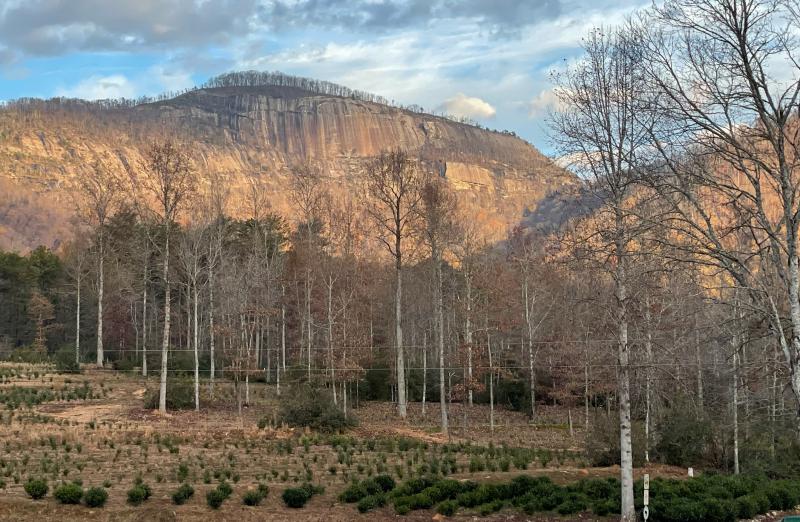
(Photo: Courtesy of Table Rock Tea Company)
In terms of “the experience,” Lorch believes – like many in the industry – that customers need to feel connected to the story of their tea. “The agritourism component is what connects people to the product,” he says. “We currently host thousands of visitors each year and are projected to be at around 20,000 visitors a year with the Real American Tea Museum. At the completion of our farm’s master plan, we’ll be accommodating over 100,000 visitors per year. That’s a lot of infrastructure!”
As another way to connect customers to tea, Table Rock Tea Company recently launched a museum at the farm – The Real American Tea Museum. The idea came about when they purchased land from a neighbor in 2021. “There was a very cool old barn [on the land] that we wanted to preserve,” says Lorch. “The site has stunning views of Table Rock Mountain, so we moved our agritourism to that part of the farm for everyone to enjoy.”
The 2,000-square-foot Real American Tea Museum features curated exhibits and artifacts to emphasize the production side of tea, particularly in America. The collection of old machinery and oddities shows off the often-unseen side of the industry. “We’re also very proud to have a former archivist from the Smithsonian on board to help us catalog,” says Lorch. “The space will double as an educational facility, offering classes and workshops throughout the year on tea, herbal medicine and other topics from various instructors.”
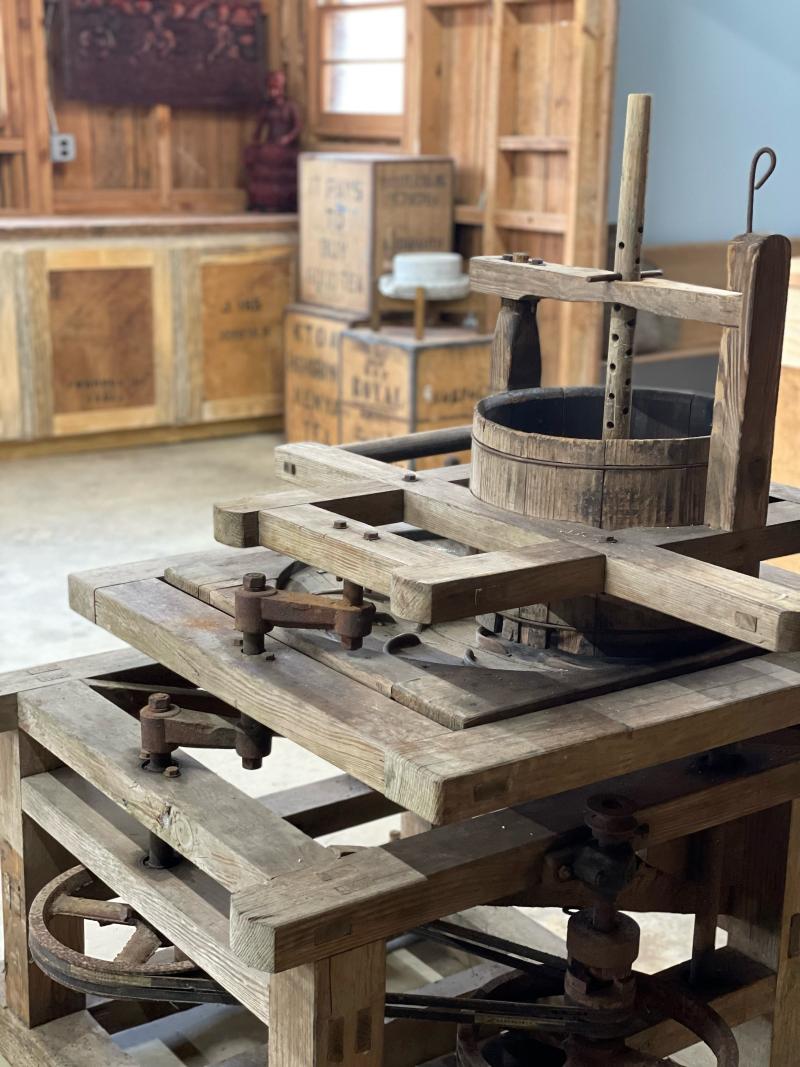
(Photo: Courtesy of Table Rock Tea Company)
For any tea farm considering agritourism offerings, like Table Rock’s tour and museum, Lorch points out that it’s not for the faint of heart. “You can’t just dabble in it – you have to lean into it full force,” he shares. “If you’re not fond of kids running around and aren’t willing to accommodate the elderly and folks with mobility issues, agritourism may not be your cup of tea.”
Right now, Table Rock Tea Company’s customer base consists of people who shop REI, Ben & Jerry’s and Whole Foods, according to Lorch. “Jen and I know our stuff but we don’t take ourselves too seriously,” he says. “Our unofficial motto is, ‘Drink what tastes good to you.’ We love that we are welcoming to everyone from the most sophisticated tea connoisseur to the guy who’s only had sweet tea from McDonalds.”
The Tea Farm in Action
Table Rock Tea Company was officially incorporated in 2014, but they’ve been growing tea since 2006. The two entrepreneurs learned about tea while doing a Hydromissions' water well project for an elementary school in Kenya in 2006. After that trip, they bought a single Camellia sinensis plant online and stuck it in the backyard of their suburban home. “It grew and we didn’t think much about it until we bought our mountain farm in 2008,” Lorch explains. “We wanted to do an edible hedgerow and decided to plant it with tea. Four hundred to 500 plants were needed for the hedge, and we thought, ‘That’s a lot of tea! Why don’t we just start a tea company?’ So, we did.”
Today, the farm has 30,000 Camellia sinensis assamica plants all grown from seed, with another 10,000 being added each year.
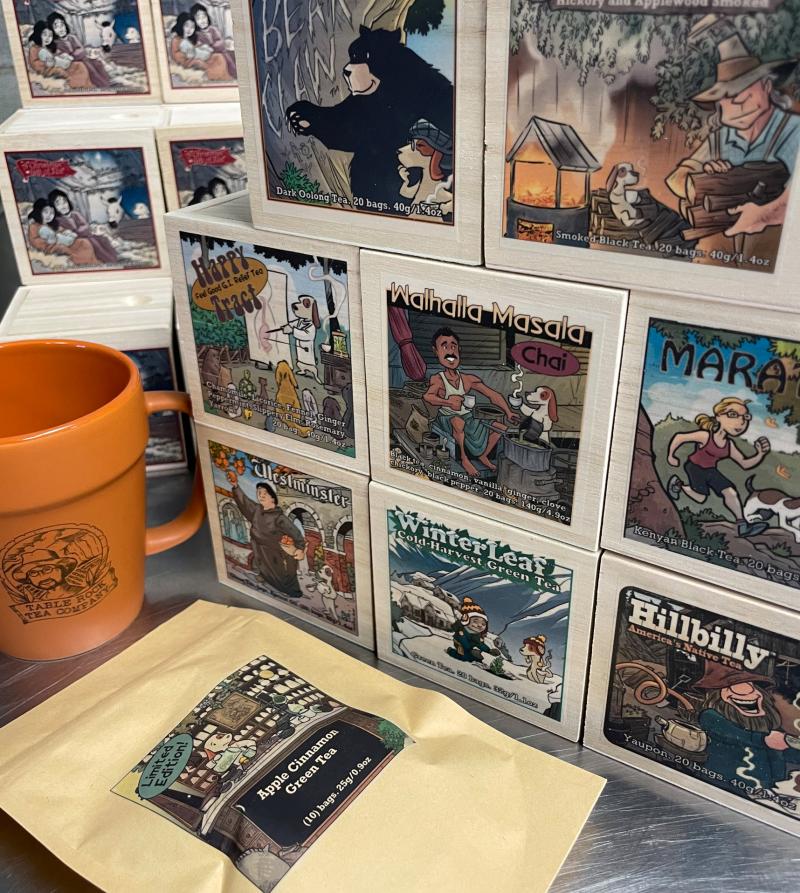
When they first started growing tea in 2006, they were pretty much on their own. Most of what they learned was from trial and error – with lots of error. “We’ve come a long way since those early days,” says Lorch. “We’ve learned a lot, and we’ve shared as much of that knowledge as we can in the book, How to Grow and Make Tea in the United States, now in its second edition. The book has inspired and guided many new tea farmers, and that makes us quite happy.”
Along their farming adventure, Table Rock Tea Company received help from Bob Sims of Andalusia Tea and Tea Embassy. He was the first person who befriended Table Rock Tea Company from within the industry. “He and I were good friends,” recalls Lorch, “but he sadly passed away last year. Like us, Bob was an innovator. We shared a lot of techniques and good conversation over the years.”
To keep the farm running smoothly, Table Rock Tea Company has several part-time employees, in addition to the full-time work that Lorch and his wife does. They expect their team to increase significantly as they continue to grow, and they also hire local seasonal workers during planting and harvesting, and they utilize volunteers. “We’ve also hosted ‘tea people’ who want hands-on time at the farm,” says Lorch. “In early 2023, we hope to have overnight accommodations available for people who want short immersive experiences.”
Lorch points out that his team takes a lot of care in crafting the farm’s teas (Of note: Their dog Jazzy can be found on every box of tea), and each tea has its own story. “WinterLeaf is a cold-harvest green tea unlike anything on the market,” he says. “Carolina Lapsang is a black tea smoked over hickory and applewood. Bear Claw is a dark oolong/black tea with natural chocolate notes. Table Rock Tea Company also offers some very effective herbal medicinal formulas, such as Happy Tract G.I. relief tea. And wait till you try Jen’s Walhalla Masala Chai – it’s amazing and has a huge fan base.”
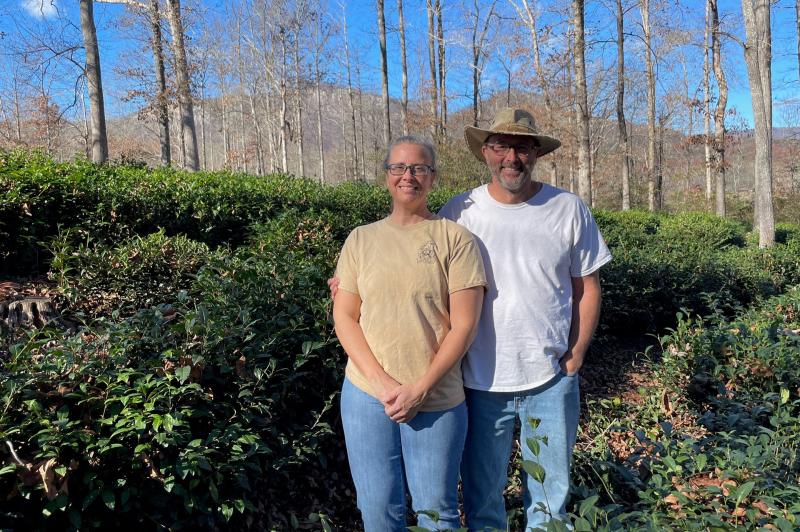
(Photo: Courtesy of Table Rock Tea Company)
Good Faith Grown, by Table Rock Tea Company
Looking at the big picture when it comes to products like tea, Table Rock Tea Company recently created an honesty-in-labeling initiative called Good Faith Grown (GFG). The mission is to provide an easy, non-regulatory platform that allows producers to tell consumers the details of their practices without taking up valuable point-of-sale time. The program can be used by any type of producer (tea or otherwise), anywhere in the world, completely independent of any certifications.
“Good Faith Grown came about from our own frustration and disappointment with certification programs,” says Lorch. “Consumers are weary of confusing and meaningless labels. We needed a better, more transparent and efficient way to tell people about our practices without the hassle and cost. There weren’t any good options out there, so we created one. The reception has been very good, especially among smaller producers. Farms and producers of all kinds have been joining – basically any vendor of anything you’d find at a grocery store or farmers market.”
The new labeling platform is free for consumers and US$35 a year for producers. “The great thing about GFG is that it’s open to everyone, and that’s really the whole point,” explains Lorch. “It’s an honesty-in-labeling platform, not another meaningless certification program. You don’t have to be organic to be Good Faith Grown. And even producers with all kinds of certifications still use GFG because their profile lets them tell people clearly, in plain language, what they use – if anything – when, and why. That’s what consumers really want to know.”
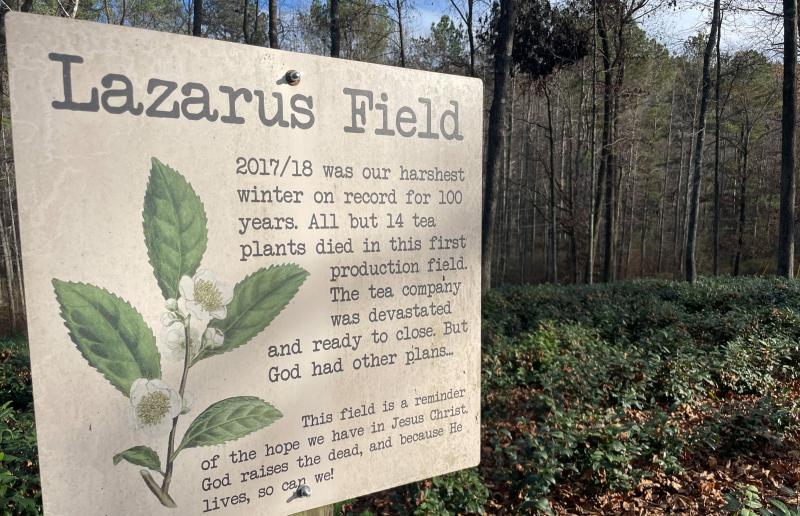
Leaving a Lasting Mark
Overall, what excites Lorch and his wife is the idea of leaving a lasting mark in an established global industry. “We didn’t have a lot of help from the industry when we got started, but we’ve made considerable effort to help many who have come after us,” he says. “We continue to introduce people to the world of tea and it’s a fun way to make a living. Beyond that, we are excited to meet new people who visit the farm as strangers and end up as friends.”
Considering the future, Lorch believes the U.S. tea industry is on a similar track as craft beer and wine, and you don’t have to be big to make an impact. “It will be smaller, local and niche brands that play to their strengths and have their own unique identities.”
To learn more about Table Rock Tea Company, visit TableRockTea.com, or check out their YouTube channel.
Aaron Kiel is an editor, writer and public relations professional in Raleigh, N.C. He’s worked in the beverage, tea and coffee industries for two decades, as well as hospitality and technology. He’s a journalist at heart, but he also wears a PR and communications hat through his consultancy, ak PR Group. He’s a contributing writer/reporter for Questex’s Bar & Restaurant News, and he recently worked as the editor of World Tea News with Questex’s Bar & Restaurant Group. In 2023, he was a finalist and honorable mention in the “Folio: Eddie & Ozzie Awards” for Range of Work by a Single Author – B2B.” Connect with him on Instagram: @adventurer_explorer.
Plan to Attend or Participate in the
World Tea Conference + Expo, March 27-29, 2023
To learn about other key developments, trends, issues, hot topics and products within the global tea community, plan to attend the World Tea Conference + Expo, March 27-29, 2023 in Las Vegas, co-located with Bar & Restaurant Expo. Visit WorldTeaExpo.com.
To book your sponsorship or exhibit space at the World Tea Conference + Expo, or to enquire about advertising and sponsorship opportunities at World Tea News, contact:
Ellainy Karaboitis-Christopoulos
Business Development Manager, Questex
Phone: +1-212-895-8493
Email: [email protected]
Also, be sure to stay connected with the World Tea Conference + Expo on social media for details and insights about the event. Follow us on Twitter, Facebook, Instagram and LinkedIn.
